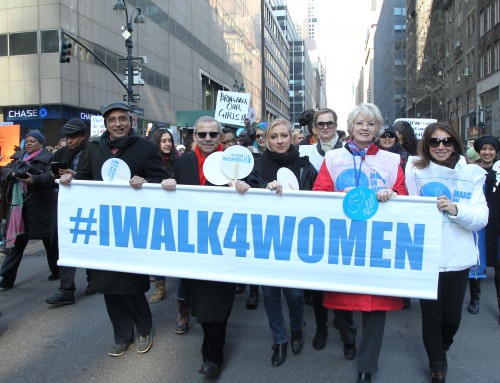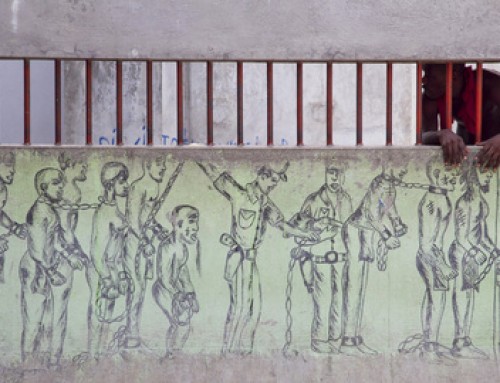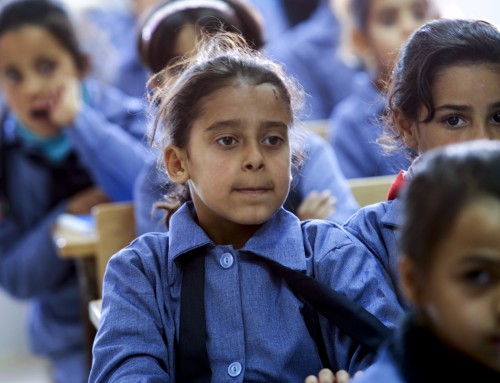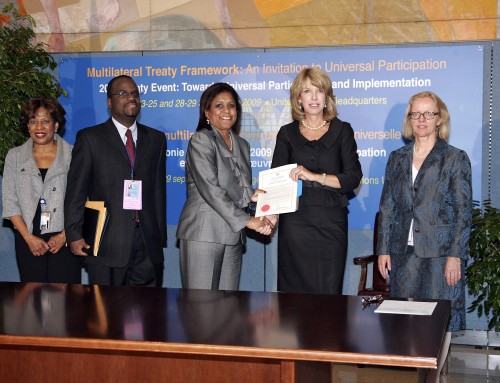Project Description
With a view to strengthening and enhancing the effective functioning of the human rights treaty body system, Switzerland piloted a Geneva Platform for Members of Human Rights Treaty Bodies, which promotes the direct exchange of information between members of treaty bodies, interested experts and other civil society actors.
Description
The effective protection of human rights is not achieved with the mere codification of norms on international level, but instead requires reliable mechanisms that monitor the implementation and embedding of these human rights standards in national law.
GA Resolution 68/268 on strengthening and enhancing the effective functioning of the human rights treaty body system constitutes a solid basis in order for the system to become more efficient, eliminate redundancies, allow the treaty bodies to fulfil their mandate in the full respect for their independence and to strengthen their impact on the human rights situation at the national level.
In Switzerland’s view, the GA resolution should be implemented with a two track-approach in accordance with the legal competences of different actors:
– The treaty bodies have the responsibility to put in place efficient working methods;
– The States Parties have the responsibility to submit their reports in a timely manner, to observe the suggested efficiency measures (e.g. pages limits), and to improve their collaboration with the treaty bodies.
Switzerland supports effective functioning of national mechanisms as it essential for implementation of universal human rights norms. It considers the independence and impartiality of the treaty body members as equally important.
The launch of a Geneva Platform for Members of Human Rights Treaty Bodies (TB Platform) fits into this context. The TB Platform will systematically build on Switzerland’s efforts to date to improve the functioning of the treaty bodies system.
The project’s primary goals are as follows:
1. It is to increase the efficiency of the treaty body system by promoting the direct exchange of information not only between members of treaty bodies, but also with interested experts and other civil society actors.
2. It constitutes a real contribution by Switzerland to the implementation of Resolution A/RES/68/268 on strengthening and enhancing the effective functioning of the human rights treaty body system.
3. It thus serves indirectly to improve the quality of the results of the treaty bodies’ work (in particular the recommendations derived from the reporting process for States), thereby making it easier to implement them in a more effective and sustainable way at all levels of our federal government.
Key results
Switzerland took advantage of the Meeting of Chairpersons on 24 June 2014 in Geneva and the interactive dialogue (ID) in the Third Committee of the 69th General Assembly with the chairpersons of the treaty bodies to discuss the idea of a Geneva Platform for Members of Human Rights Treaty Bodies for the first time. It also financed three meetings in the platform’s planned format for a first pilot phase.
After this initial pilot phase in 2014/15 was successfully completed, the Academy of International Humanitarian Law and Human Rights (AdH) in Geneva, acting as project partner, surveyed all TB members and other interested parties in spring 2015 in agreement with the FDFA and with support from the OHCHR, focusing on the question of whether they wanted the pilot project to be continued. The responses to this survey were remarkably positive. A platform of this kind would be appreciated as a valuable supplementary information instrument and an important contribution to the implementation of Resolution A/RES/68/268. Some even stated that an opportunity such as this for TB experts to share ideas with each other and with external specialists was not only desirable, but in fact essential.
In view of these findings, the FDFA (DIL) will continue the project in 2015/16 in conjunction with the AdH.






